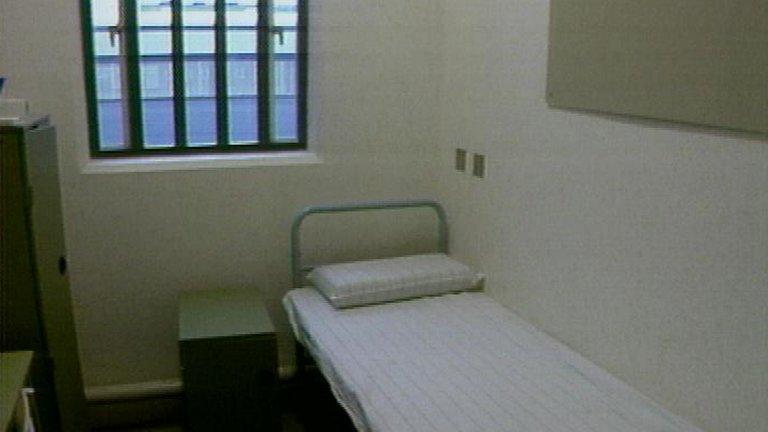Call to end holding mentally ill in police cells in Wales
- Published
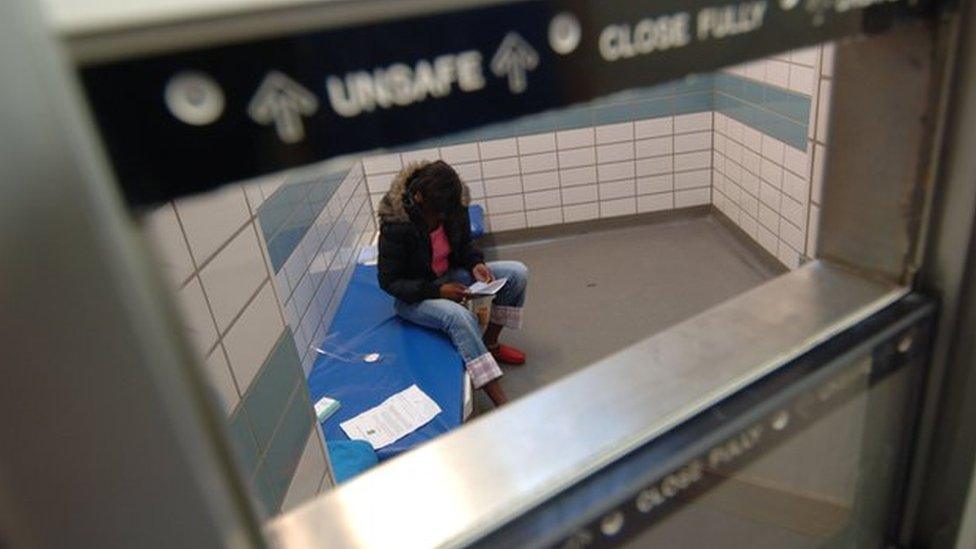
The use of police cells as "places of safety" for people with mental health illnesses needs to end, a charity has urged.
National Police Chiefs' Council figures, external showed there were 336 mental health detentions in police cells in Wales during 2015-16.
This dropped from 541 the previous year, but charity Mind Cymru said the "dangerous practice" should be banned.
The Home Office said progress had been made but there was "more work" to do.
Welsh police forces said the number of detained cases were continuing to fall.
Currently, people detained under section 136 of the Mental Health Act 1983 can be held in a hospital or police station for up to 72 hours.
The number of people with mental health illnesses being held in police cells has fallen
The figures revealed South Wales Police detained people 192 times under section 136 in a police cell - the third highest number across all police forces in England and Wales.
This compared to Gwent with 81 and Dyfed-Powys with 53, while North Wales detained people with mental health illnesses in cells 10 times.
In England, some police forces such as Hertfordshire and Merseyside recorded no instances.

'Really frightening'
Louisa, who has borderline personality disorder which leads to her having frequent suicidal crises, was detained in a police cell during a mental health crisis in 2014.
She said: "When you're feeling suicidal, anxious or scared already being in a police cell makes everything that much worse.
"I spent time in a cell because there weren't any crisis care beds available for me. It was really frightening and nobody should have to go through what I went through."

Sara Moseley, director of Mind Cymru, said a police cell was not an appropriate place for someone in mental health crisis.
"When you're in a mental health crisis, you may become frustrated frightened and extremely distressed," she said.
"Your behaviour could be perceived as aggressive and threatening to others, but you desperately need support and compassion. Being held in a police cell and effectively treated like a criminal only makes things worse."
She added: "In England, police forces are showing us what is possible. If Merseyside and Hertfordshire police forces can entirely avoid detaining vulnerable people in police cells, so can any other police force area, including here in Wales."
South Wales Police said its figure had fallen from 2014-15 when there were 335 instances, and the number was continuing to fall.
Alun Michael, South Wales Police and Crime Commissioner, said: "At its heart this is not a policing problem but a problem for the public service as a whole, and all too often people end up in a police station or custody cell because there is no other place of safety or treatment available at the time of crisis.
He called for "even more effective joint working across agencies" to try to change the situation.
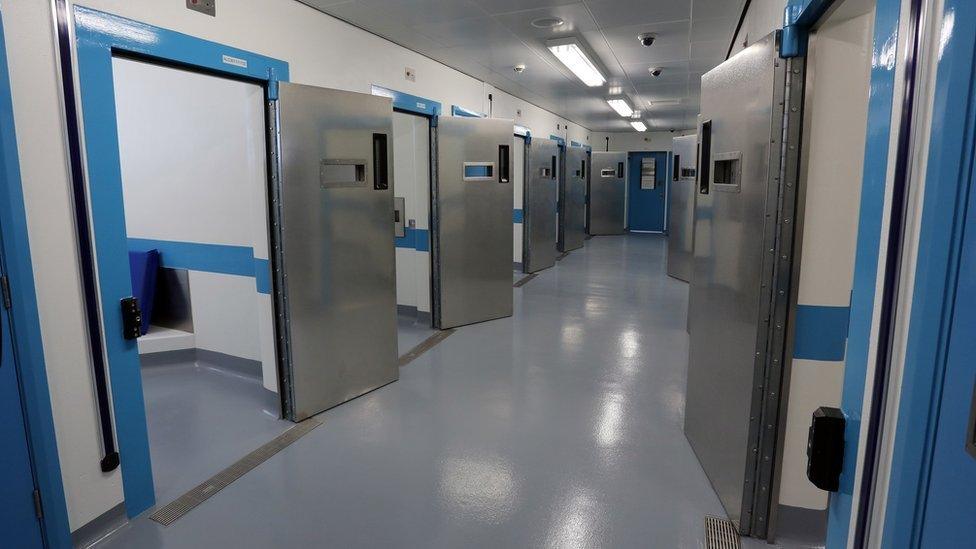
Dyfed-Powys Police Ch Supt Aled Davies said since the force's mental health triage team was introduced in January 2015, the figure had almost halved compared to 2014.
Det Ch Insp Simon Williams, of North Wales Police, said the force had worked in partnership with other organisations to "ensure those in crisis are dealt with sensitively and appropriately [this] has resulted in these pleasing figures."
Gwent Police and Crime Commissioner Jeff Cuthbert said a dedicated mental health specialist now worked alongside Gwent Police to ensure vulnerable people were given appropriate care and support, and the percentage of people detained under the Mental Health Act who were held in custody had dropped from 51% in 2013-14 to 33% by 2016.
The Home Office said the figures had halved over the last year but there was still more work to be done.
"We are committed to ensuring those in mental health crisis get compassionate care - and that no one is taken to a cell when they have committed no crime and solely because there is no alternative safe place for them," a spokeswoman said.
The Policing and Crime Bill, being considered by the House of Lords, proposes a ban on using police cells for under 18s in mental health crisis, and ensuring they can only be used for adults in exceptional circumstances, she added.
- Published13 January 2016
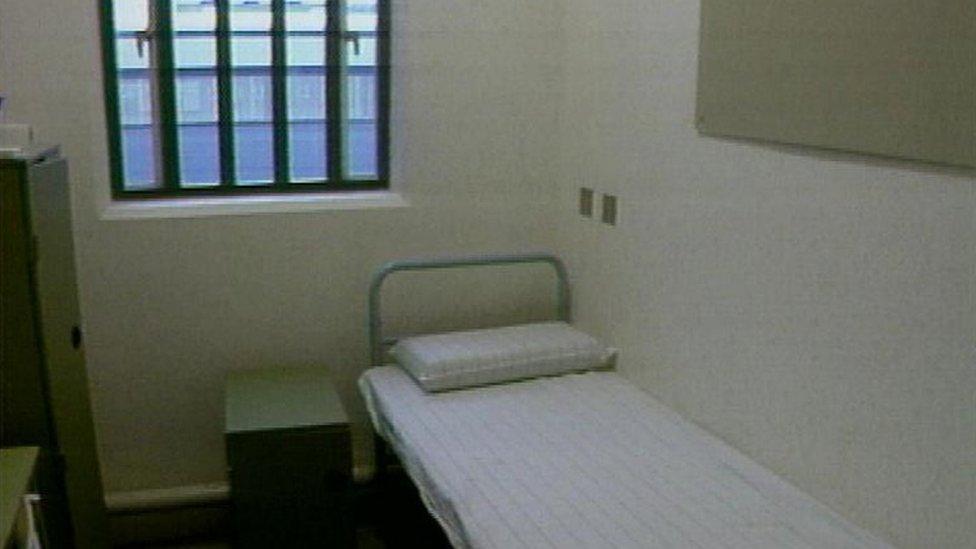
- Published18 January 2015
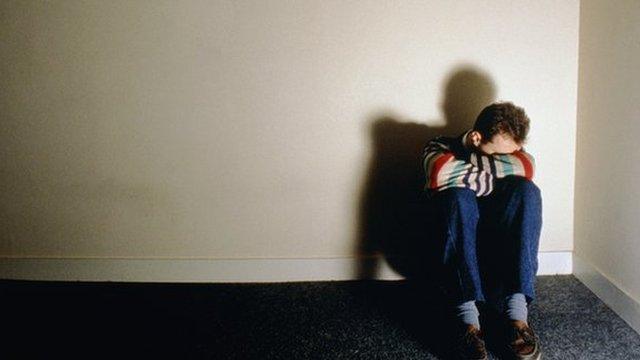
- Published6 February 2015
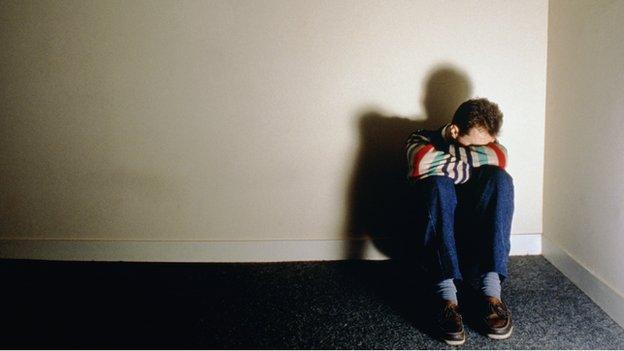
- Published23 January 2014
